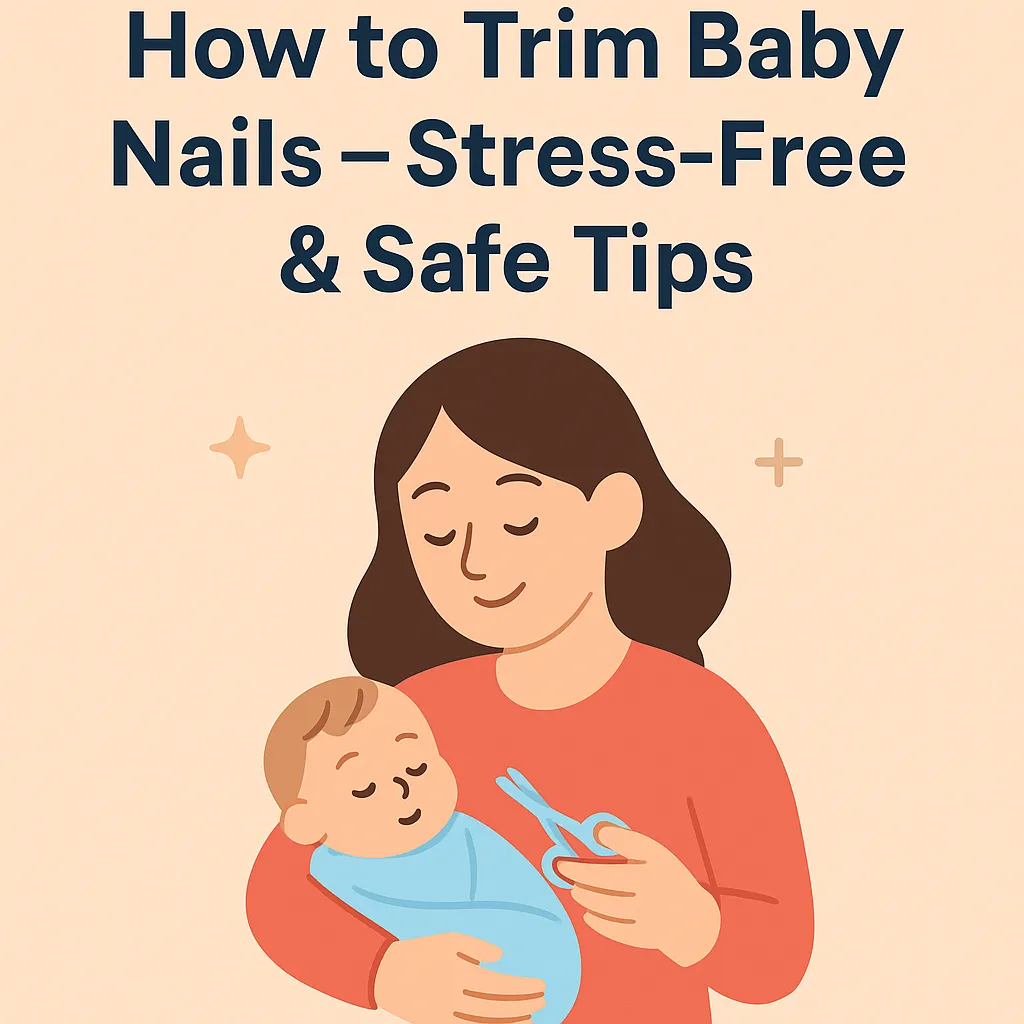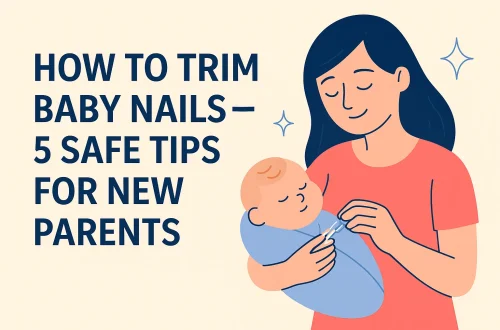
How to Trim Baby Nails – Stress-Free & Safe Tips
Why Nail Trimming Matters
Babies grow quickly, and so do their nails. Leaving them untrimmed may lead to accidental scratches, skin irritation, or even eye injuries. Maintaining baby nail care also teaches good hygiene habits as your child grows.
When and How Often to Trim
Most newborns need their nails trimmed about once a week. Their fingernails grow faster than toenails. As your baby grows, you might need to trim more often. Early on, you may even use a soft nail file instead of clippers to avoid injury.
Best Tools for Trimming Newborn Nails
Use tools specifically designed for infants:
- Baby nail scissors with rounded tips
- Infant nail clippers
- Soft emery boards or baby nail files
- Battery-powered nail trimmers (gentle and safe)
Never use adult-sized tools, as they can be too sharp or bulky for tiny fingers.
Step-by-Step Guide: How to Trim Baby Nails Safely
- Choose the right time: Trim after a bath when nails are soft or while your baby sleeps.
- Hold your baby still: Ask for help or use a swaddle to keep them calm and reduce sudden movements.
- Push the fingertip down: Gently press the pad away from the nail to avoid nicking the skin.
- Use short, careful snips: Trim along the natural curve of the nail. For toenails, cut straight across.
- File sharp edges: Use an emery board to smooth any rough tips after trimming.
What to Do If You Accidentally Cut the Skin
Don’t panic. Use a clean, damp cloth to stop any bleeding. Avoid using bandages on fingers as babies often suck their hands. The cut should heal quickly.
Helpful Tips for Stress-Free Nail Care
- Keep trimming sessions short and gentle
- Make it a fun, soothing activity — sing or talk softly to your baby
- Use good lighting or even a magnifying glass for visibility
- Trim toenails less frequently, but don’t ignore them
Conclusion: Trimming with Confidence
Learning how to trim baby nails safely may seem intimidating at first, but it gets easier with time. Keep your baby calm, use the right tools, and stay consistent. With practice, you’ll master this small but essential part of infant care — one that keeps your baby comfortable and protected.
Further Reading
Check our Baby Care section for more guides. Also, explore this helpful guide from HealthyChildren.org.




